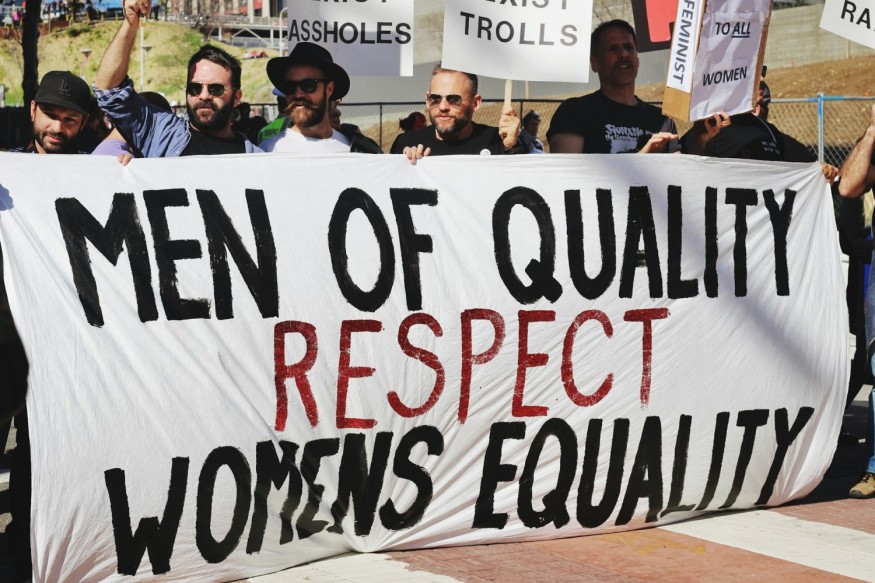
If you're at a lucky dip, and out of the 100 items in the box, there are 85 yellow toys and 15 green ones, which color toy are you more likely to receive?
Where there is more of one presence than the other, it is only natural for the surrounding environment to work in favor of the majority. This is evident in many things, including ethnicities, social groups, sexes, gender identities, and religious groups. Wherever a majority exists, the majority will hold more sway.
While there are plenty of educational opportunities, such as an MBA in Healthcare Management online, it appears that the healthcare industry is presenting somewhat of a statistical anomaly. Despite holding a clear majority in terms of both consumer and workforce, the number of women in leadership roles within healthcare is scant.
This leads us to question why the most populace demographic in healthcare isn't represented within the industry's leadership and what can be done about it.
The Situation at Hand
Though women typically suffer from underrepresentation in most industries, the healthcare sphere is one of the few where the number of women greatly exceeds that of men. Around 60% of hospital or healthcare workers are women, and 65% are the "medical officer" of their household. As well as this, 80% of women are responsible for making the healthcare purchasing decisions for their families.
With paid and unpaid workforces combined, that is roughly 134 million women (out of 167.5 million) in the healthcare industry alone, against men's 32,642,400 (out of 162.4 million.) Why is it then that only 30% of women are working as C-suite employees and only 13% as CEOs?
As outlined above, such an astronomical majority in a condensed platform should not (either statistically or ethically) suffer from such stellar discrepancy. The question is, what is happening in our nation's medical sorority?

How Is This Happening?
In response to the decreased number of women in various male-dominated industries, certain groups like to argue three main points:
- Women are more often staying home to look after the family and not focusing on a career.
- The number of women interested in these industries is naturally lower than that of men.
- Women simply don't want to work in leadership roles.
While this topic has enough content to fill several hundred articles similar to this one, for now, we only can refute them based on the statistics and evidence in the healthcare industry; and they are easily refuted.
To address the first point, yes, more women are playing the role of caregiver and homemaker—but they never asked for this position. There is an insidious lie that permeates our society, that women staying home and looking after kids is a breeze while husbands do the "hard" work of holding down a 9–5 job. The truth is that men created this society. Men created a world where women's achievements are downplayed or entirely ignored. Yes, women are staying home more to care for the family—but they never asked for that role, and they certainly never collectively decided to give up the opportunity for a career in exchange for it.
The previous point also addresses the second. There may be fewer women interested in certain industries than others, but that can be attributed to a society that actively discourages them from working in these niches. It's not so much that women aren't interested in these industries, it's that they're actively discouraged from pursuing it. Also, bringing the discussion back to the topic at hand—the healthcare industry is female-dominated, so that argument falls apart the second it's applied to this topic.
Finally, to dispute the final point women unequivocally want to reach positions of leadership in the healthcare industry. In a poll of 1200 women, 60% said that they would like to pursue a leadership role. What discouraged them? Family obligations, and a lack of support from their (male) bosses.
In other words, this is happening because of an inherent gender bias in our society and is actively preventing women from rising to the ranks they rightfully deserve.
Bridging the Gap
Women make up the majority of both customers and workers in the healthcare industry, but having minimal leadership representation within that industry creates a huge imbalance of demand, supply, and social support.
Imagine you were in a wheelchair, and you had to go through a committee to get a ramp installed on your house, but no one on the committee knew what a wheelchair was, how it worked, the effort involved in operating with one, and how a ramp could help you. Would you trust that authoritative body to make the correct decision?
This is the situation women are currently facing. They make up the vast core of the healthcare demographic, and yet there are very few people in control of the industry who understand the wants and needs of their major audience. It wouldn't be tolerated in any other industry. Why is it tolerated in healthcare?
We need to understand that the social dynamics we have accepted as "normal" when it comes to working women are archaic, misogynistic constructs implemented by men, and if we want to improve the quality of our nation's healthcare, we must address the ongoing blight of gender bias in the industry.











